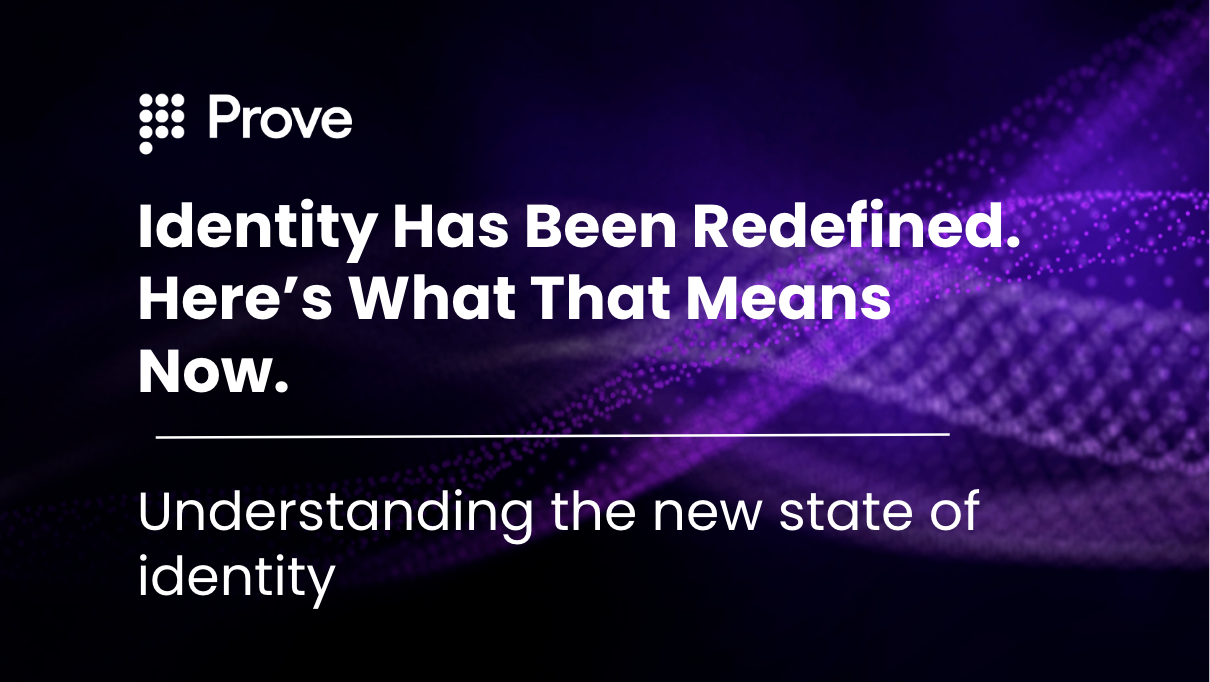How to Overcome Customer Service Challenges Caused by Fragmented Identity Data


As more companies embrace digital, flawless customer service has become a prerequisite for businesses to differentiate themselves in a highly competitive environment. The inability to service customers efficiently, be it on digital or assisted channels, results in bad customer experience, reputational damage, and an increase in operating costs.
The simultaneous proliferation of data sources and customer service channels in recent times has led to fragmentation and silos of identity data, thus making it difficult for enterprises to identify legitimate customers. The outcome is suboptimal customer service.
Adopting an identity verification and authentication model based on Phone-Centric Identity is the ideal approach to addressing this problem.
Impact of Fragmented Identity on Customer Service and Cost

According to a Microsoft survey, 72% of customers think that customer service agents should know their contact & product information and service history the very moment they start engaging with a brand. In the absence of a single reliable identity source and verification system, consumers and service agents are forced into cumbersome manual identity verification workflows, thereby negatively impacting the speed and efficacy of customer service.
One such area where enterprises typically have difficulty is IVR (Interactive Voice Response) containment, where customers perform self-service activities without leaving the channel. If the automated process fails to identify the customer with a high degree of confidence, an agent-led manual verification is initiated, defeating the very purpose of automated customer servicing. AHT (Average Handle Time), the average duration of a call starting from initiation to call completion, is often prolonged by an agent’s manual authentication processes. Apart from negative customer experience, this scenario also creates operational overheads.
Fragmented identity also poses severe challenges to digital self-service (online and mobile). Lack of information about a consumer, such as alternate email and phone numbers, creates challenges in authenticating and servicing customers. Some data sources store static and potentially stale data, creating inconsistencies in the authentication process and forcing customers into more expensive assisted channels such as the call center. An overwhelming increase in call center traffic can create massive operational overhead for organizations.
Potential for Fraud Due to Fragmentation of Identity Data
Assisted customer service channels such as call centers are most prone to the risk of fraud due to fragmented identity. IVR credential stuffing and account takeover attacks are rampant on phone-based channels. Due to the inconsistency in identity data across sources and with access to stolen personal information, fraudsters can execute social engineering attacks with ease. In the absence of stronger authentication checks, fraudsters breach call center cks by running thousands of numbers through the IVR, identifying phone numbers belonging to customers. This stolen data is then used to run targeted phishing attacks.
Many enterprises mitigate the risk of fraud caused by fragmented identity by imposing additional identity validation measures into the customer service flow. These steps require further actions from either the customer or a customer service agent, potentially resulting in a sub-par customer experience.
Tackling Customer Service Challenges With Phone-Centric Identity
The solution to problems caused by fragmented identity lies in embracing more innovative identity and security methods. Organizations can significantly enhance authentication capabilities for customer service sessions by doing three things: confirming possession of the phone, analyzing the phone number’s reputation by screening for risk, and confirming ownership of the phone number. Alternately termed ‘PRO,’ this authentication model aligns with NIST SP 800-63 identity guidelines and includes the following three checks:
- Possession: Passively prove possession of the phone
- Reputation: Assess the real-time reputation of the phone number (tenure and behavior)
- Ownership: Prove ownership of the phone line
Phone-Centric Identity™ leverages billions of signals from authoritative sources and provides a high level of correlation with identity. Proprietary research by Prove on Fortune 100 companies reveals that 70% of them use phone numbers as a modern way to identify consumers and small businesses. Assigning a Trust Score™ to identity checks and authentication based on intelligence gathered from diverse data sources significantly reduces the risk of identity takeover fraud, increases pass rates, and improves service turnaround time.

Identity attributes stored in authoritative sources vary in detail. While some elements are common across sources, some are unique to the type of data source. Enterprises must ensure that their identity verification and authentication systems have the ability to perform automated 2+2 verification checks tapping into multiple sources, where required. Multi-source verification prevents the need to route high-risk approvals into manual queues, thereby delivering a frictionless service experience.
With a paradigm shift underway in customer servicing from physical to remote channels, customer service challenges will continue into the future. Companies will first have to identify the gaps they have in their current identity structure and work towards filling those gaps. A unified enterprise-wide identity verification and authentication platform must be adopted and integrated with the diverse set of communication and customer servicing channels to ensure quality and consistency in customer onboarding and servicing across the organization. This platform must be highly scalable and must support the orchestration of identity verification and authentication checks as part of its customer service processes.
Prove Identity Manager™ maintains a tokenized registry of identity data binding multiple attributes sourced under customer consent from several authoritative sources. Prove Identity Manager ensures that the tokenized identity data is continuously refreshed and satisfies several customer servicing use cases like passwordless login, call center authentication, and secure money transfers. Prove Trust Score analyzes behavioral and phone intelligence signals to provide a measure of fraud risk and identity confidence of a potential transaction.
Get in Touch
Get Smarter About Digital Identity
Receive helpful insights like this article right in your inbox

Keep reading
 Read the article: The Super Bowl Highlights the Scale of Fraud in Online Sports Gaming
Read the article: The Super Bowl Highlights the Scale of Fraud in Online Sports GamingLearn how advanced identity verification helps sports betting operators combat fraud, deepfakes, and AI-driven threats.
 Read the article: Identity Has Been Redefined. Here’s What That Means Now.
Read the article: Identity Has Been Redefined. Here’s What That Means Now.In an era of deepfakes and automated fraud, traditional one-time identity verification is no longer enough. Learn why organizations must transition to continuous, adaptive identity systems to ensure security without sacrificing seamless user growth.
 Read the article: The Death of the OTP: Why Legacy MFA is Failing the Modern Consumer
Read the article: The Death of the OTP: Why Legacy MFA is Failing the Modern ConsumerDiscover why legacy MFA is failing and how Prove Unified Authentication provides a smarter, frictionless alternative. Learn how to replace insecure SMS OTPs with continuous, multi-layered identity assurance that prevents fraud while boosting conversion rates.












